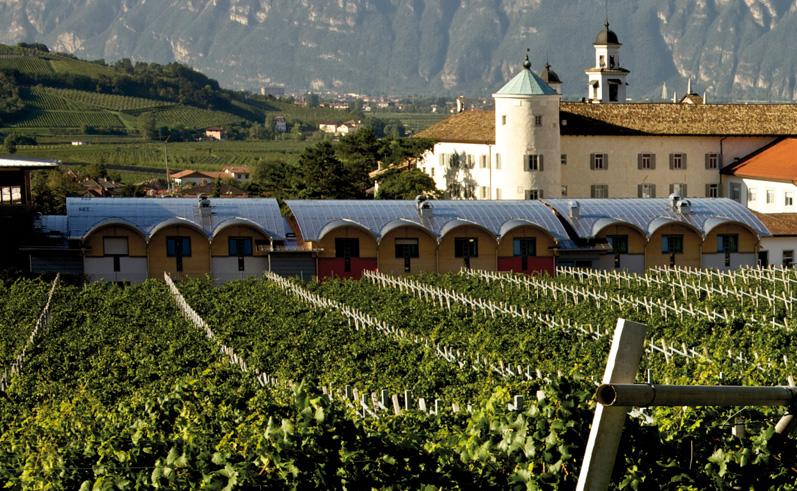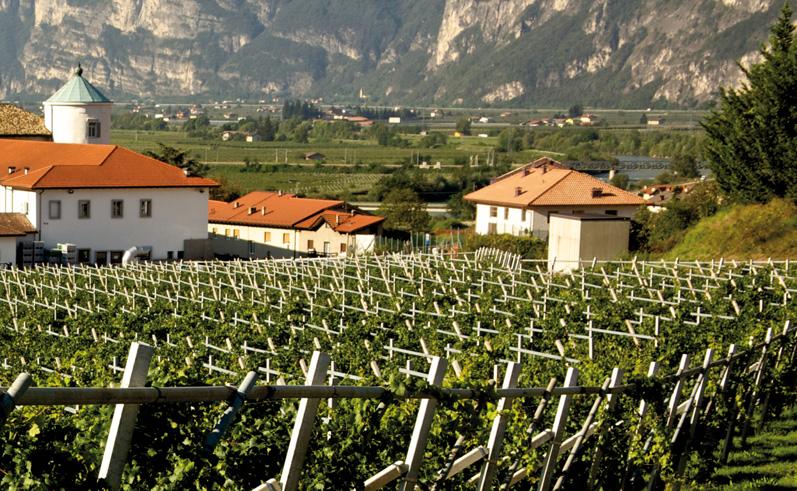
2 minute read
Fondazione Edmund Mach
In order to improve agriculture in what was then southern Tyrol, on the 12th January 1874 the Tyrolean Diet in Innsbruck approved the foundation of an agricultural school in the Augustinian monastery of San Michele allʼAdige. The school opened in the autumn of that year with a programme of study written by its first director, Edmund Mach. Mach was an efficient organiser and from the very outset fervently supported the plan to turn the institute into an innovative organisation where teaching and research would contribute together to the improvement of agriculture in the region.
After the First World War, the Istituto Agrario di San Michele allʼAdige (IASMA) was ended to the Italian government which in turn passed it to the Autonomous Province of Trento.
In 1990 Provincial Law no. 28 formalised the transformation of IASMA into a functional agency of the Autonomous Province of Trento, and at the same time integrated technical services into the institute, adding to its original roles of training and research.
On 1st January 2008 the Institute and its activities were amalgamated with an other Provincial research institute (Centre for Alpine Ecology) and given a new name: Fondazione Edmund Mach (FEM) legally defined as a public agency governed by laws (Provincial Law no. 14, of the 2nd August 2005).
The 3 centres that constituted IASMA were inherited by FEM and given a more flexible structure geared to the specific aims of Education and Training, Research and Innovation, and Technology Transfer, which became not just the new names for the centres but also described the most salient aspects of their respective missions.
On the 1st January 2009 FEM Experimental Centre was renamed the “Research and Innovation Centre” (CRI). The former Departments and the Centre for Alpine Ecology were subsequently assigned to specialised research Areas covering the fields of Genomics and Crop Biology, Food, Quality and Nutrition Area and Environment and Natural Resources.
The aim of the Genomics and Crop Biology Area is to contribute to the genetic improvement of cultivated plant species and to develop new varieties with commercial value through research ranging from functional genomics to applied molecular genomics and the study of plant/pathogen interactions.

The Food, Quality and Nutrition Area focuses on qualitative, technological and nutritional evaluation of agri-food products through the study of the potential of cultivated plants, human health, to affect the investigation of the sensory mechanisms of food perception, and development of innovative methods for food traceability.
The Environment and Natural Resources Area tackles highly topical issues such as climate change and the maintenance of biodiversity through basic research and pratical applications with theoretical models integrated with monitoring and field work.
Each Area is divided into Programmes based on research projects and innovative technology platforms in the fields of computational biology, metabolomics, functional genomics, isotopic analyses, climate modelling, and GIS and remote sensing.
Pioneering organisations, a young and dynamic environment, international researchers, collaborations with universities and institutions throughout the world, and high-level specialised training initiatives: and these place CRI in a global context, encouraging the exchange of ideas, the development of innnovation and internationally-recognised results.
With this strong background, the CRI occupies an authoritative position in knowledge acquistion and in fostering innovation and positive spillover effects for the Region. These are indispensible requisites for stimulating the development of an economy which is increasingly knowldege-based and for supporting long-term, high-quality socio-economic growth.




